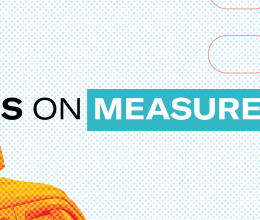LOS ANGELES - The California affiliates of the ACLU filed a class action lawsuit today stating that Proposition 69 is unconstitutional. The case challenges those portions of the law that require DNA testing of people who are arrested for a felony and never charged or later found innocent, and people who have been convicted of a felony but have already served their debt to society and are no longer under any supervision by the criminal justice system.
Because of Proposition 69, people who are arrested for felonies will be subjected to DNA testing under the law, even if they are found innocent of the crime. This includes victims of identity theft; political protestors; lawful medical marijuana users; victims of domestic violence, who are arrested for violence committed in self-defense and who either have the charges against them dropped or are subsequently acquitted; and people who were arrested for felony drug offenses and who upon successful completion of treatment programs, have had their convictions expunged under Proposition 36 or other state laws. Proposition 69 also mandates the sharing of DNA samples with law enforcement and private laboratories nationwide and globally.
"DNA reveals highly personal medical information like if a person is HIV-positive or predisposed to Alzheimer's, multiple sclerosis or even certain forms of cancer," said ACLU Staff Attorney Ricardo Garcia. "It contains a wealth of intimate information, much more than a fingerprint."
"Collecting DNA through Prop. 69 is a direct violation of a person's Fourth Amendment and due process and privacy rights," added Garcia. "Californians should be free from unreasonable searches and seizures. It's our constitutional right to privacy of our personal medical and genetic information."
Reuben Rivas, a former legal observer for the 2000 Democratic National Convention, joined the lawsuit after being swept up while observing a protest and arrested for a felony that a judge determined there was no evidence to sustain. Under the law, Rivas will be required to be tested for his DNA.
"I was treated like a criminal and arrested for a crime that I didn't commit. And now under the passage of Proposition 69, I will be subject to have my civil rights violated again by having to submit my DNA to law enforcement, even though I was never convicted of any crime."
Proposition 69 was passed by California voters on Nov. 2, 2004 and is known as the California DNA Fingerprint, Unsolved Crime and Innocence Protection Act. Before passage of Prop. 69, California law provided for mandatory DNA testing only of individuals who had been convicted of serious and violent felony offenses and the inclusion of their DNA in a statewide database.
The suit, filed jointly with Covington & Burling in U.S. District Court in San Francisco, seeks a permanent injunction against DNA extraction and retention from Californians arrested but not convicted and those who have completed probation and parole.






